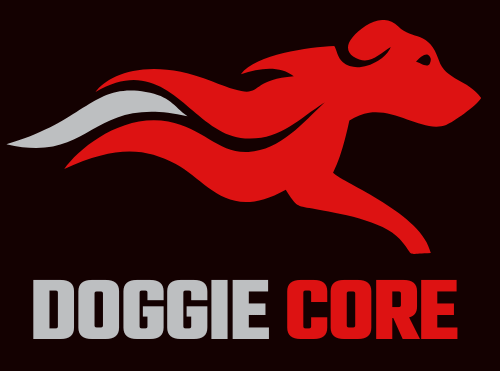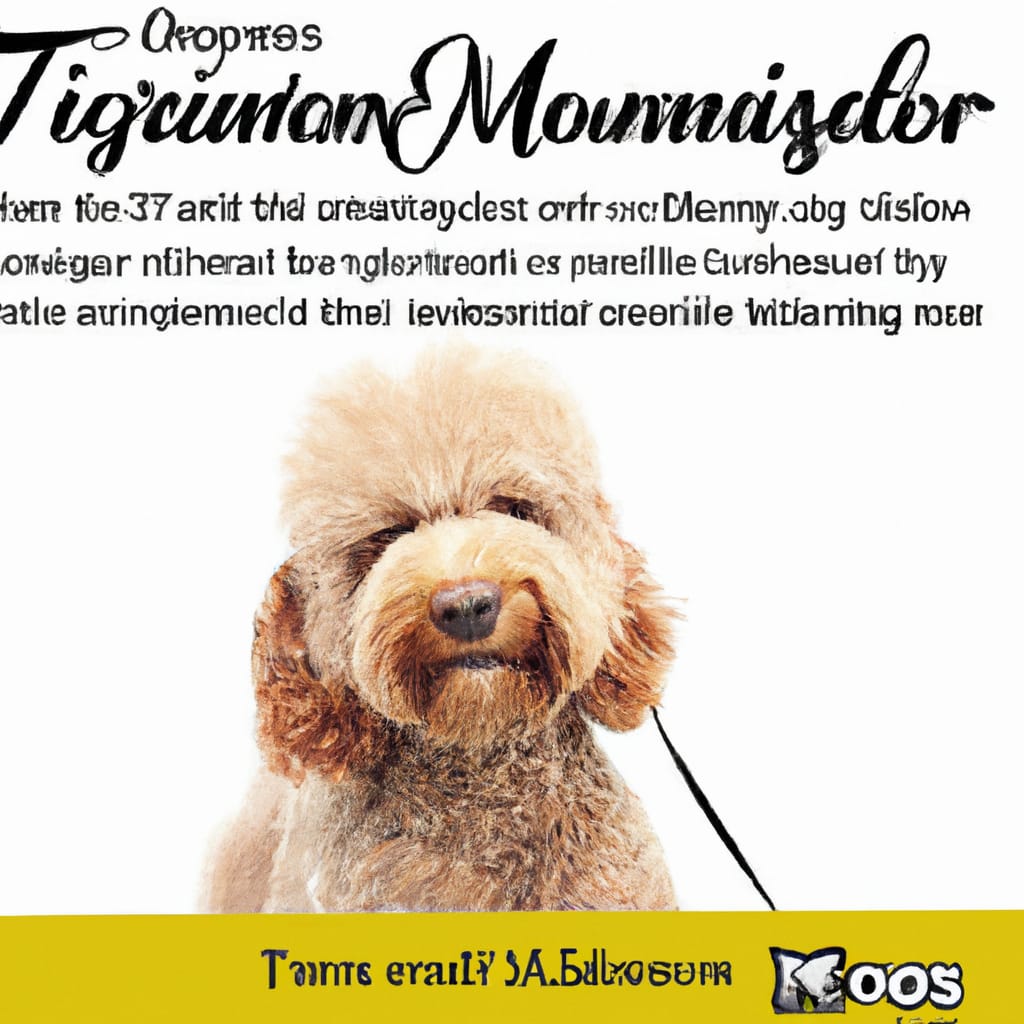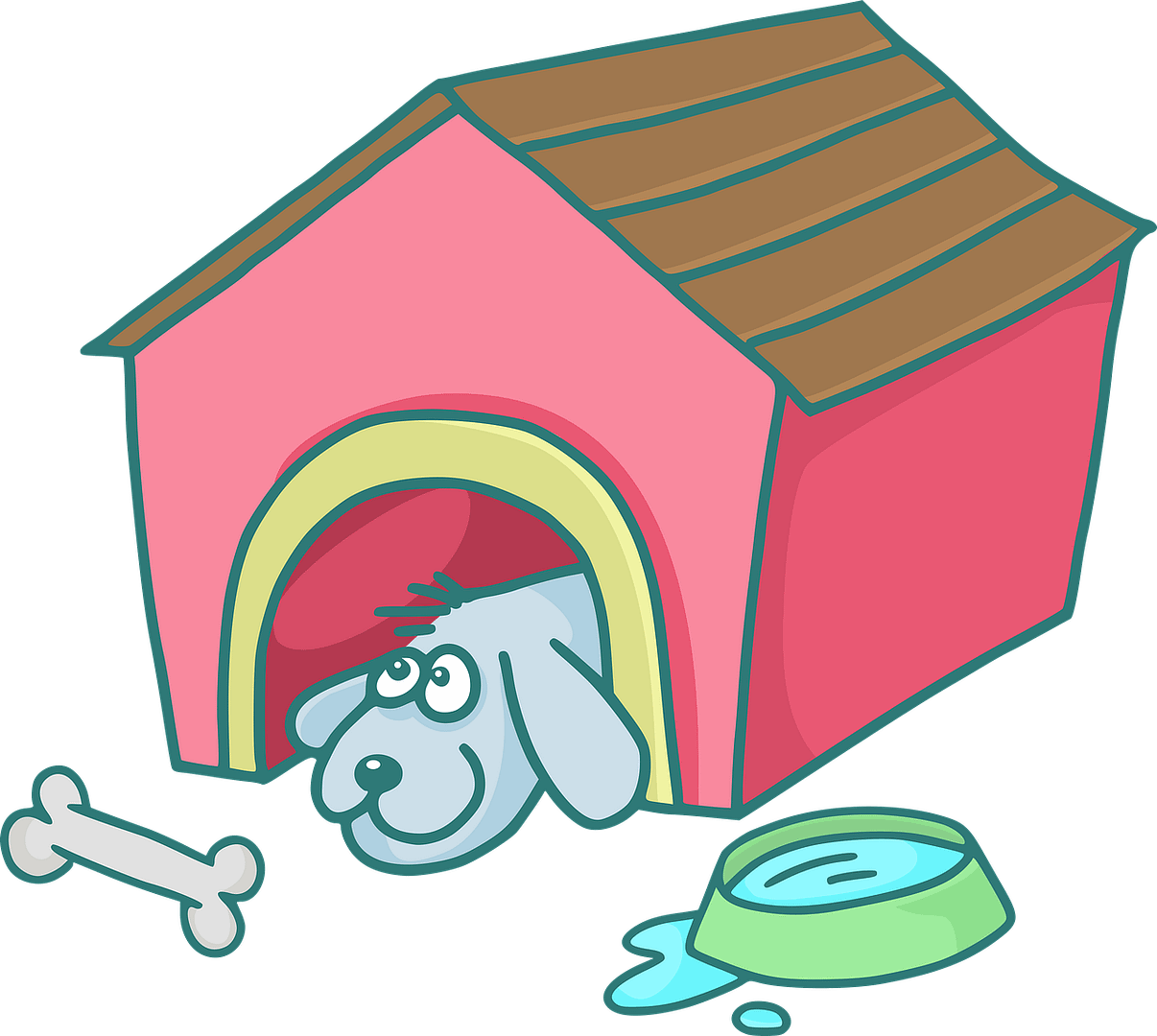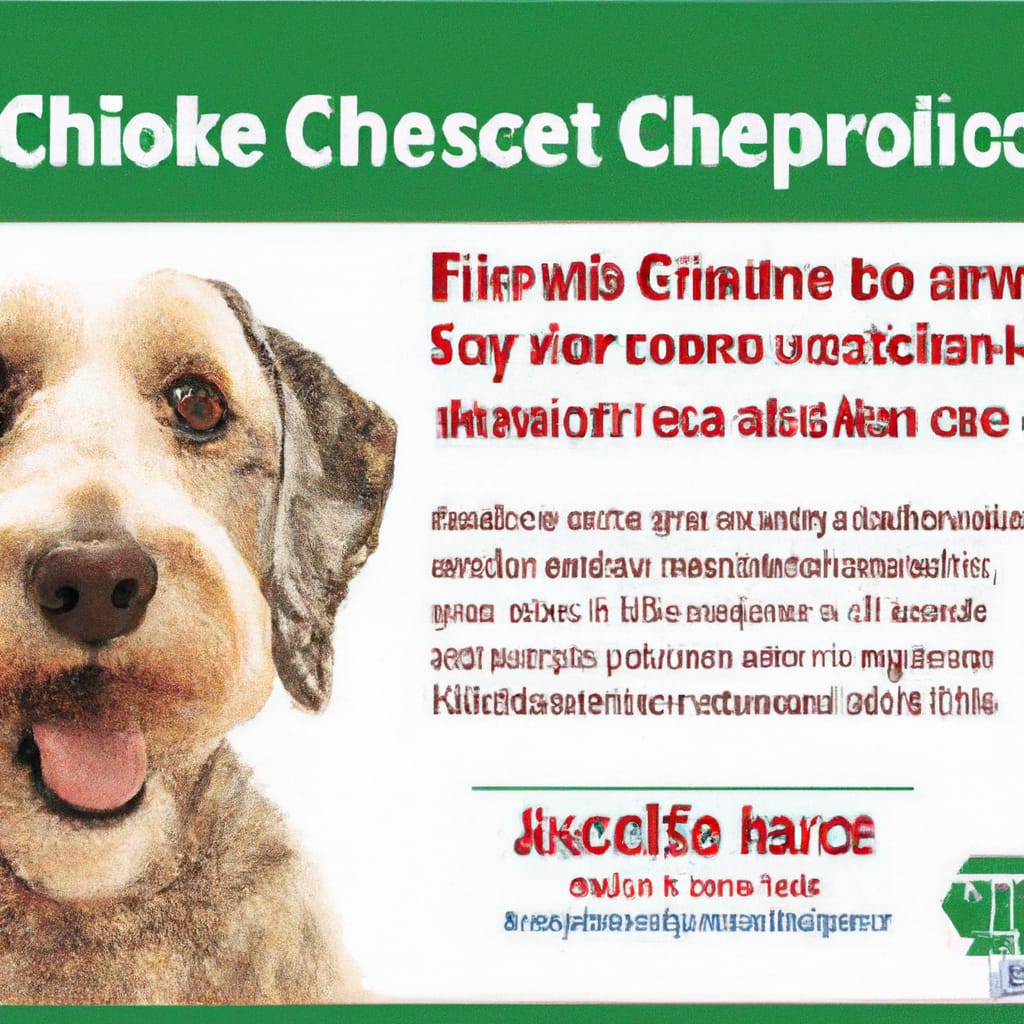Best Diet Practices For Doodle Dogs: Choosing The Right Food
Are you a proud owner of a Doodle dog but struggling to choose the right food for them? Look no further! In this article, we will discuss the best diet practices for Doodle dogs, ensuring that you provide them with the nutrition they need to thrive. From understanding their unique dietary requirements to selecting high-quality ingredients, we’ve got you covered. Don’t let your Doodle dog’s diet be a puzzle anymore – let’s get started on the path to a healthier and happier furry friend!

Understanding Doodle Dogs
Doodle dogs, also known as designer dogs, are a popular choice for many pet owners. They are a crossbreed of poodles and other dog breeds, resulting in a unique mix of characteristics from both parent breeds. Due to their mixed heritage, doodle dogs come in various sizes, coat types, and temperaments. Whether you have a Goldendoodle, Labradoodle, or any other type of doodle dog, it is crucial to understand their nutritional needs to ensure their overall health and well-being.
Types of Doodle Dogs
Doodle dogs come in a wide range of sizes, including toy, miniature, and standard sizes. Additionally, they can have different coat types, such as curly, wavy, or straight. The most common doodle breeds include Goldendoodles, Labradoodles, Bernedoodles, and Aussiedoodles. Each breed has its own unique traits and characteristics. Understanding the specific type of doodle dog you have is essential when it comes to choosing the right diet for them.
Nutritional Needs of Doodle Dogs
Doodle dogs, like any other breed, have specific nutritional needs that must be met to maintain their health and well-being. These dogs require a balanced diet that provides them with the necessary nutrients, vitamins, and minerals. The goals of a doodle dog’s diet are to support their growth, maintain a healthy weight, promote optimal organ function, and support their overall immune system. By understanding their nutritional needs, you can make informed choices when it comes to selecting the right food for your furry friend.
Factors to Consider When Choosing Food for Doodle Dogs
Choosing the right food for your doodle dog involves considering several factors that may affect their dietary requirements. These factors include their age and life stage, health conditions, activity level, and any allergies or sensitivities they may have. By taking these factors into account, you can ensure that the food you provide meets their specific needs and promotes their overall well-being.
Age and Life Stage
The nutritional needs of doodle dogs vary throughout different life stages. Puppies have higher energy requirements and need food that supports their growth and development. Adult doodles may have different nutritional needs based on their activity level and overall health. Senior doodles often require a diet that promotes healthy aging and supports their joint health. It is important to select a food that is appropriate for your doodle’s age and life stage to ensure they receive the necessary nutrients for their specific needs.
Health Conditions
If your doodle dog has any health conditions, it is crucial to choose a food that addresses those specific issues. Some doodle breeds may be prone to certain health conditions, such as hip dysplasia or allergies. In such cases, selecting a food that supports joint health or is specially formulated for dogs with allergies can be beneficial. Consult with your veterinarian to determine if your doodle dog has any specific dietary needs based on their health condition.
Activity Level
The activity level of your doodle dog also plays a role in determining their nutritional requirements. Dogs with high activity levels, such as those participating in agility or working as therapy dogs, require food that provides them with the necessary energy to support their active lifestyles. On the other hand, dogs with lower activity levels may need a diet that prevents weight gain. Matching your doodle’s food to their activity level can help them maintain a healthy weight and overall well-being.
Allergies and Sensitivities
Doodle dogs are known for being hypoallergenic, making them a popular choice for individuals with allergies. However, some doodle dogs may still have allergies or sensitivities to certain ingredients. Common allergens in dog food include beef, chicken, dairy, and grains. If your doodle dog exhibits any signs of food allergies or sensitivities, such as skin irritations or digestive issues, it is essential to choose a food that avoids those specific allergens. Look for limited ingredient diets or hypoallergenic options to ensure your doodle’s dietary needs are met.
Common Ingredients to Look for in Doodle Dog Food
When choosing the right food for your doodle dog, it is important to look for specific ingredients that provide them with the necessary nutrients for optimal health. These common ingredients include high-quality protein sources, healthy fats, fruits and vegetables, and whole grains.
High-Quality Protein Sources
Protein is an essential nutrient for doodle dogs, as it supports muscle growth and repair, provides energy, and helps maintain a healthy immune system. Look for dog food that lists high-quality protein sources as the first ingredient, such as chicken, turkey, or fish. Avoid foods that contain unnamed meat by-products or fillers, as these may not provide the same level of nutrition as high-quality protein sources.
Healthy Fats
Healthy fats, such as omega-3 and omega-6 fatty acids, are important for doodle dogs’ skin and coat health, brain development, and overall immune function. Look for foods that list healthy fat sources, such as salmon oil or flaxseed, in the ingredient list. These fats can also be beneficial for doodle dogs with joint issues, as they have anti-inflammatory properties.
Fruits and Vegetables
Fruits and vegetables are a valuable source of vitamins, minerals, and antioxidants for doodle dogs. Look for dog foods that include a variety of fruits and vegetables, such as sweet potatoes, carrots, blueberries, and spinach. These ingredients provide essential nutrients and can support your doodle’s overall health. Avoid foods that contain excessive amounts of fillers or artificial additives, as these may not provide the same nutritional benefits.
Whole Grains
While some doodle dogs may require a grain-free diet due to allergies or sensitivities, others can benefit from the inclusion of whole grains in their food. Whole grains, such as brown rice or oatmeal, can provide a good source of energy and fiber for doodle dogs. Look for dog foods that contain whole grains in moderation, as excessive amounts may cause digestive issues or weight gain.
Avoiding Harmful Ingredients in Doodle Dog Food
Just as it is important to know what ingredients to look for, it is equally important to know which ingredients to avoid when choosing food for your doodle dog. Avoiding harmful ingredients can help prevent health issues and support your dog’s overall well-being.
Artificial Additives and Preservatives
Artificial additives and preservatives, such as artificial colors, flavors, and preservatives like BHA, BHT, and ethoxyquin, should be avoided in doodle dog food. These additives can potentially cause allergic reactions or contribute to long-term health issues. Look for foods that use natural preservatives, such as vitamin E or rosemary extract, instead.
Fillers and By-Products
Fillers, such as corn, wheat, or soy, are inexpensive ingredients that are often added to dog food to increase volume. However, these fillers provide little nutritional value and can cause digestive issues or allergies in some dogs. By-products, such as unnamed meat by-products or meat meals, should also be avoided. Opt for dog food that uses high-quality ingredients and avoids fillers and by-products.
Allergenic Ingredients
If your doodle dog has known allergies or sensitivities, it is important to avoid allergenic ingredients that may trigger a reaction. Common allergenic ingredients in dog food include beef, chicken, dairy, and grains. Read the ingredient list carefully and select a food that excludes these ingredients or offers hypoallergenic options. Consulting with your veterinarian can help determine which specific ingredients to avoid based on your dog’s allergies.

Types of Doodle Dog Food
There are various types of dog food available for doodle dogs, including dry dog food, wet dog food, and raw or homemade diets. Each type has its own benefits and considerations.
Dry Dog Food
Dry dog food, also known as kibble, is a popular choice among doodle dog owners due to its convenience and affordability. It is easy to measure and store, and can be left out for free-feeding. Look for high-quality dry dog food that meets your doodle’s specific nutritional needs. Some doodle dogs may require a formula designed for a specific life stage or health condition.
Wet Dog Food
Wet dog food, also referred to as canned food, is a good option for doodle dogs who may have trouble chewing or need added moisture in their diet. Wet dog food is often more palatable for picky eaters and can provide additional hydration. However, it is important to check the ingredient list and choose a high-quality wet dog food that meets your doodle’s nutritional needs.
Raw and Homemade Diets
Raw and homemade diets involve feeding your doodle dog raw or cooked meats, fruits, vegetables, and grains. While these diets can be beneficial when properly balanced, they require careful attention to ensure your doodle dog receives all the necessary nutrients in the right proportions. Raw and homemade diets may not be suitable for all doodle dogs, and consulting with a veterinary nutritionist is recommended to ensure your doodle’s diet is balanced and meets their nutritional needs.
Feeding Guidelines for Doodle Dogs
Establishing appropriate feeding guidelines for your doodle dog is essential to maintain their optimal health and well-being. Consider factors such as serving size recommendations, feeding frequency, and transitioning to a new food.
Serving Size Recommendations
The appropriate serving size for your doodle dog depends on various factors, including their age, weight, activity level, and overall health. Consult the feeding guidelines provided by the dog food manufacturer as a general starting point. However, it is important to monitor your dog’s weight and adjust the serving size accordingly. Overfeeding can lead to obesity, while underfeeding can result in nutrient deficiencies or insufficient energy levels.
Feeding Frequency
The recommended feeding frequency for doodle dogs varies based on their age and life stage. Puppies typically require more frequent meals, usually three to four times per day, to support their growth and energy needs. Adult doodles can be fed two meals per day, while senior dogs may benefit from smaller, more frequent meals to aid digestion. Consult with your veterinarian to determine the ideal feeding frequency for your doodle dog.
Transitioning to a New Food
When switching to a new food for your doodle dog, it is important to do so gradually to prevent digestive upset. Start by mixing a small portion of the new food with their existing food and gradually increase the proportion of the new food over several days or weeks. This gradual transition allows your dog’s digestive system to adjust to the new food without causing any gastrointestinal issues.
Benefits of Feeding a Balanced Diet to Doodle Dogs
Feeding your doodle dog a balanced diet offers numerous benefits, ensuring their overall health and well-being. Some key advantages include improved digestion, enhanced energy levels, healthy skin and coat, and a strong immune system.
Improved Digestion
A balanced diet that includes high-quality ingredients can improve your doodle dog’s digestion. Foods that are easily digestible and contain fiber can promote regular bowel movements and prevent gastrointestinal issues such as constipation or diarrhea. Additionally, avoiding fillers and by-products can help reduce the risk of digestive upset.
Enhanced Energy Levels
Proper nutrition plays a vital role in providing your doodle dog with the necessary energy they need to thrive. A balanced diet that includes high-quality protein and healthy fats can support their energy levels and promote optimal physical performance. By providing adequate nutrition, you can ensure that your doodle dog has the energy to enjoy daily activities and live an active lifestyle.
Healthy Skin and Coat
Doodle dogs often have luxurious coats that require proper care and nutrition. Feeding a balanced diet that includes essential fatty acids, such as omega-3 and omega-6, can help maintain a healthy skin and coat. These fatty acids can reduce inflammation, prevent dryness or itchiness, and promote a shiny and lustrous coat. Additionally, a balanced diet can provide the necessary vitamins and minerals to support overall skin health.
Strong Immune System
A balanced diet that meets all your doodle dog’s nutritional needs can contribute to a strong immune system. By providing the right combination of vitamins, minerals, and antioxidants, you can help support your dog’s immune function and reduce the risk of infections or diseases. A strong immune system is essential for your doodle dog’s overall health and can help them stay active and thrive.
Special Dietary Considerations for Doodle Dogs
In addition to the general nutritional considerations for doodle dogs, there are some special dietary considerations that may arise based on their specific needs. These considerations include weight management, food allergies and sensitivities, and gastrointestinal disorders.
Weight Management
Maintaining a healthy weight is important for the overall health and well-being of doodle dogs. Obesity can lead to various health issues, such as joint problems or cardiovascular disease. If your doodle dog is overweight or prone to weight gain, choosing a food formulated for weight management can help. These foods are often lower in calories and higher in fiber, helping your dog feel satisfied while still maintaining a healthy weight.
Food Allergies and Sensitivities
Some doodle dogs may have food allergies or sensitivities that require a special diet. If you suspect your dog has an allergic reaction to certain ingredients, such as chicken or grains, it is important to choose a food that excludes those allergens. Limited ingredient diets or hypoallergenic options can be beneficial for dogs with food allergies or sensitivities. Consult with your veterinarian to determine the best approach to managing your doodle dog’s dietary needs.
Gastrointestinal Disorders
Doodle dogs, like any other breed, can be prone to gastrointestinal disorders such as irritable bowel syndrome or pancreatitis. If your dog has a known gastrointestinal disorder, it is important to choose a food that is easily digestible and gentle on their stomach. Foods that contain ingredients such as white fish, sweet potatoes, or limited ingredients can be beneficial for doodle dogs with gastrointestinal issues. Consult with your veterinarian to determine the most appropriate diet for your dog’s specific condition.
In conclusion, choosing the right food for your doodle dog is essential for their overall health and well-being. By understanding their nutritional needs and considering factors such as age, health conditions, activity level, and allergies, you can make informed decisions when selecting their diet. Look for high-quality ingredients, avoid harmful additives and fillers, and consider the different types of dog food available. Establish appropriate feeding guidelines and consider the benefits of feeding a balanced diet. Lastly, be mindful of special dietary considerations such as weight management, food allergies, and gastrointestinal disorders. By following these best diet practices, you can ensure that your doodle dog thrives on a nutritious and delicious diet.













